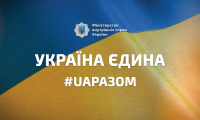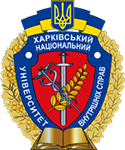Laboratory of Physical and Chemical Methods of Analysis №33
The Laboratory of Physical and Chemical Methods of Analysis №33 provides laboratory, practical and seminar classes provided for in the curriculum, and research classes to involve students and cadets in scientific work. The laboratory of physical and chemical methods of analysis is the basis for the implementation of scientific experiments during the relevant research by lecturers of the cycle commission of air transport.
The laboratory is used for laboratory classes in the following disciplines:
- “Chemistry, Fuel and Lubricants” are laboratory classes on the following topics: “Equipment of Chemical Laboratories and General Rules of Chemical Experiment”, “Method for Determining the Density of Oil Products”, “Method for Determining the Fractional Composition of Oil Products”;
- “Fuel and Lubricants” are laboratory classes on the following topics: “General Methods for Determining the Quality of Gasoline”, “General Methods for Determining the Quality of Diesel Fuel”, “General Methods for Determining the Quality of Jet Fuel”, “General Methods for Determining the Quality of Oil”, “General Methods for Determining the Quality of Labricants”;
- “Chemistry, Fuel and Lubricants” are laboratory classes on the following topics: “Equipment of Chemical Laboratories and General Rules of Chemical Experiment”, “Method for Determining the Density of Oil Products”, “Method for Determining the Fractional Composition of Oil Products”;
- “Technology of Oil Products” are laboratory classes on the following topics: “Method for Determining the Density of Oil Products”, “Method for Determining the Fractional Composition of Oil Products”, “Method for Determining the Flash Point in an Open Cup”, “Method for Determining the Flash Point in a Closed Cup”;
- “Physical and Chemical Methods of Analysis” are laboratory classes on the following topics: “Equipment of Chemical Laboratories and General Rules of Chemical Experiment”, “Determination of Aromatic Hydrocarbons”, “Method of Determining the Viscosity of Aviation Fuel and Lubricants”, “Determination of Water Content in Oil Products”, “Determination of Water-soluble Acids and Alkalis”;
- “Physical and Chemical Methods of Analysis and Technology of Fuel and Lubricants” are laboratory classes on the following topics: “Determination of Water Content in Oil Products”, “Method for Determining the Fractional Composition of Oil Products”;
- “Means of Quality Control of Fuel and Lubricants” are laboratory classes on the following topics: “Determination of the Content of Anti-icing Fluid in the Fuel for Jet Engines”, “General Methods for Determining the Quality of Gasoline”, “General Methods for Determining the Quality of Diesel Fuel”, “General Methods for Determining the Quality of Jet Fuel”, “General Methods for Determining the Quality of Oil”, “General Methods for Determining the Quality of Oils”;
- “Fundamentals of automation” are laboratory classes on the following topics: “Method for Determining the Density of Oil Products”, “Determination of the Value of the Solution Hydrogen Index (pH)”;
- “Transport Fuel and Lubricants” are laboratory classes on the following topics: “General Methods for Determining the Quality of Gasoline”, “General Methods for Determining the Quality of Diesel Fuel”, “General Methods for Determining the Quality of Jet Fuel”, “General Methods for Determining the Quality of Oils”, “General Methods for Determining the Quality Labricants”.








